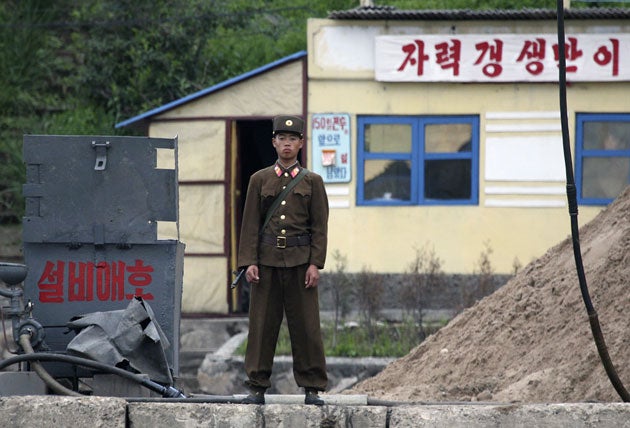Defiant North Korea to 'weaponise' plutonium
Pyongyang condemns UN sanctions, warns that blockade would be 'act of war' and vows to accelerate its nuclear arms programme

North Korea said yesterday it would start a uranium-enrichment programme and vowed to "weaponise" all of its plutonium in response to the latest UN sanctions. Pyongyang also threatened military action if the US and its allies tried to isolate it, saying it would consider any blockade "an act of war".
The UN Security Council had approved a resolution on Friday which banned all weapons exports from North Korea and most arms imports. It authorised UN member states to inspect North Korean sea, air and land cargo, requiring them to seize and destroy any goods that violate the sanctions. In a sign of growing global anger at North Korea's pursuit of nuclear weapons in defiance of the council, the North's closest allies, Russia and China, joined Western powers and nations from every region in unanimously approving the resolution.
In response, North Korea's Foreign Ministry acknowledged for the first time that the country has a uranium-enrichment programme, insisting that it will never abandon its nuclear ambitions. Both uranium and plutonium can be used to make atomic bombs. "The whole amount of the newly extracted plutonium [in the country] will be weaponised," it said.
"We'll take firm military action if the United States and its allies try to isolate us," KCNA news agency quoted an unnamed Foreign Ministry spokesman as saying.
The UN resolution seeks to deprive North Korea of financing and material for its weapons programme and bans the country's lucrative arms exports, especially missiles.
The resolution condemns "in the strongest terms" the North's 25 May nuclear test "in violation and flagrant disregard" of the 2006 sanctions resolution. Pyongyang has raised tension in the region in the past months by test-firing missiles, restarting a plant to produce arms-grade plutonium and holding the 25 May test, which put it closer to having a working nuclear bomb. The US has long suspected North Korea, which has ample supplies of natural uranium, of having a programme to enrich uranium for weapons. North Korea for years has used its military threat to squeeze concessions out of regional powers willing to pay Pyongyang for taking steps that decrease regional risks.
Studies have shown that UN sanctions imposed on North Korea for missile testing, and its only prior nuclear test in 2006, had almost no impact, while its meagre trade actually increased due to lax enforcement of those measures. "The success of financial sanctions depends heavily on how far China and the US are willing to go to pressure North Korea," said Jeong Hyung-gon, a research fellow at the Korea Institute for International Economic Policy. The isolated country's $2bn annual trade with China, equal to about 10 per cent of the North's annual GDP, is its most important economic relationship. Beijing has wanted to avoid any measures that could cause the North's economy to collapse and lead to chaos on its border.
Two senior diplomats negotiating the resolution told Reuters on condition of anonymity that China had never really clarified whether it intended to implement the new sanctions.
Join our commenting forum
Join thought-provoking conversations, follow other Independent readers and see their replies
Comments
Bookmark popover
Removed from bookmarks